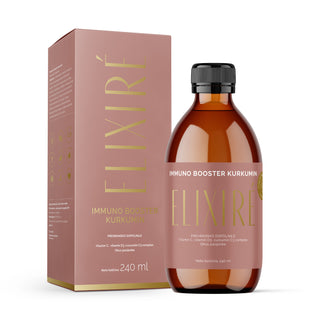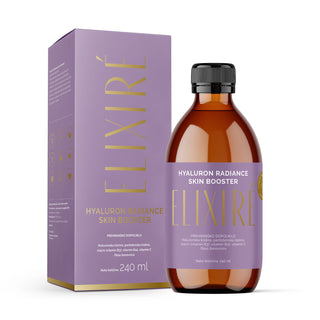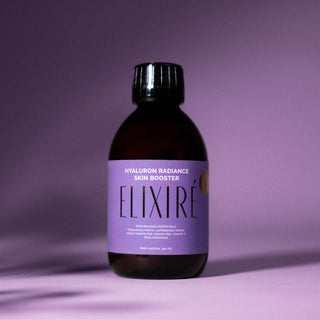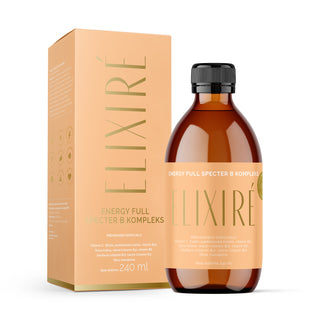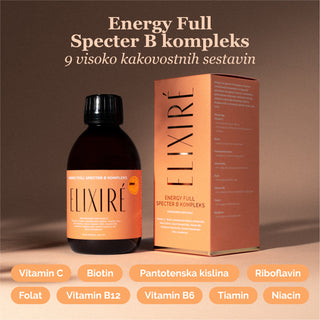At a time when the market is flooded with shampoos, oils, and hair serums, many of us forget the basics: internal hair supportBelow, we will explore which vitamins are key to hair health and how to effectively incorporate them into your daily routine – naturally, safely, and long-term.
Why are hair vitamins so important?
Every hair follicle is alive and needs nutrients to function properly. When the body lacks certain vitamins or minerals, this quickly shows up in the hair – with hair loss, slow growth, breakage, and loss of shine.
Most often this happens because of:
- unbalanced diet,
- stress,
- hormonal fluctuations,
- or a weakened immune system.
That's why they are vitamins for hair essential support for anyone who wants to keep their hair strong, vital and healthy.
Key vitamins for hair growth and health
Below are vitamins and minerals whose role in hair health is also confirmed by approved claims from the European Food Safety Authority (EFSA):
- Biotin (vitamin B7) - contributes to maintaining healthy hair and is often the first vitamin associated with beautiful hair. Its deficiency can manifest itself in hair loss and brittleness. (1*)
- Vitamin B12, B5, B9 (folic acid) - these B vitamins are included in cell metabolism, the formation of red blood cells and normal functioning of the nervous system, which also affects the hair follicles. (2*)
- Zinc and selenium - contribute to maintaining healthy hair and nails and participate in the protection of cells from oxidative stress. (3*)(4*)(5*)
- Vitamin D - contributes to normal functioning of the immune system, which is also important for the stability of hair growth, especially during seasonal changes. (6*)
- Vitamin C - contributes to collagen formation, which plays a role in the normal functioning of the skin – including the scalp. (7*)
- Copper - contributes to normal hair color and acts as an important element in protecting cells from oxidative stress. (8*)
Elixré Hair Fusion capsules – natural support for hair, skin and nails
If you are looking for a holistic approach to hair care, then Elixré Hair Fusion capsules an excellent choice. It is a dietary supplement that contains carefully selected vitamins, minerals and plant extracts that support hair health from the inside out.
Key benefits of capsules:
- Stimulation of hair growth – extract arugula stimulates hair bulbs.(9*)
- Strong hair – biotin, iron, zinc, selenium, vitamin D, B5, B9, B12 contribute to maintaining healthy hair.
- Healthy and radiant skin – hyaluronic acid, zinc, copper, B2 and B3 contribute to skin health.
- Strong nails – selenium and zinc contribute to maintaining healthy nails.
- Supports collagen production – MSM and vitamin C participate in the formation of collagen.
- Less fatigue – Vitamin C, B3 and B12 contribute to reducing fatigue.
How to incorporate hair vitamins into your routine?
- to take care of balanced diet (green leafy vegetables, legumes, nuts, whole grains),
- to avoid excessive stress,
- enjoy extras such as Hair Fusion capsulesif the diet is not sufficient,
- and regularly take care of scalp health, as this is the foundation of hair growth.
Conclusion: The path to beautiful hair begins within
Healthy, shiny and strong hair is not the result of a miracle shampoo. It is a reflection of internal balance and the proper supply of nutrients to the body. With the right combination of hair vitamins – as offered by Elixré Hair Fusion capsules – you can support growth, reduce hair loss, and rediscover the natural beauty of your hair.
7. Source: Scientific Opinion on Dietary Reference Values for vitamin C, (EFSA Journal), https://www.efsa.europa.eu/en/efsajournal/pub/3418
8.Source: Re‐evaluation of the existing health‐based guidance values for copper and exposure assessment from all sources, (EFSA Journal), https://www.efsa.europa.eu/en/efsajournal/pub
9. Source: Kyoh® Rocket Leaf Extract Regulates Proliferation and VEGF and FGF7 Expression in Human Dermal Follicle Papilla Cells, (A. Mena-García, JM Meissner, D. Pajuelo, MI Morán-Valero, A. Cristos, M. Díez-Municio, JL Mullor), https://pmc.ncbi.nlm.nih.gov/articles/PMC11990418/



